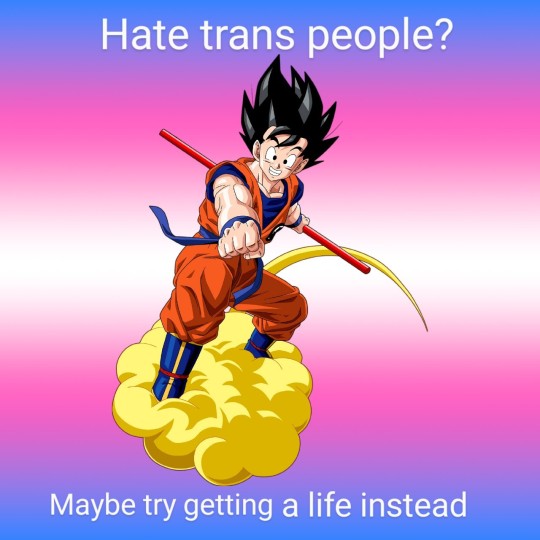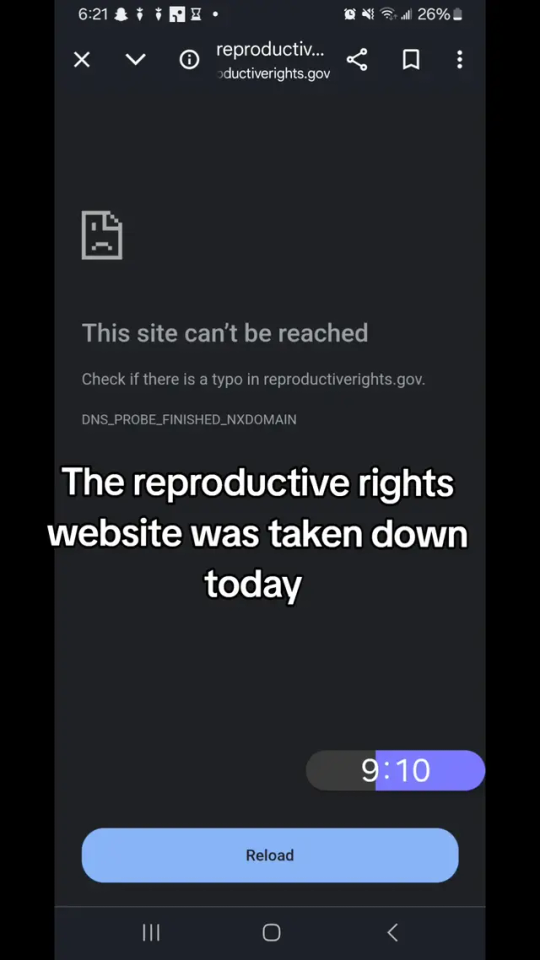#pro human
Explore tagged Tumblr posts
Text
A lot of us have been raised to thinking fighting an evil power is glorious and the best way to change things. We’ve seen the movies where the hero’s enact enough violence, throw enough people and the bad guys are gone and we get a happy ending.
That’s not real life.
Violence is failure. If your goal is a utopia of human rights, violence is going backwards. It’s a bad thing. It’s a last resort which means the other options didn’t work and things aren’t going well. It’s not something to be glorified it’s something to be mourned.
Fighting means that one innocent person will be caught in the crossfire and that is devastating. That’s always terrible. It means you lose good people, and the evil people are killed for their crimes which for people like us, who believe in human rights and oppose the death penalty, is a negative. It’s a failure of the systems. Violence will always do violence to yourself, when the memories of what you’ve seen follow you back to your life.
War is never a good thing, it’s never something to look forward to. It’s something where the most vulnerable get hurt first and suffer terribly. Do not glamourise war.
Protesting, signing petitions, organising meal drives and fundraisers and education events might not be glamorous as what we were taught, but it’s what our utopia looks like. It’s people coming together to make the world a peaceful place.
Idolise peace, because if we’re successful, that’s all that will be left.
10 notes
·
View notes
Text
I wish I could show you,
When you are lonely or in darkness,
The Astonishing Light
Of your own Being!
Hafez
#Islam#Islamic mysticism#love#love religion#empathy#fear#philosophy#heart#heart centered#humanist#pro human#quotes#quote#words#lit#literature#religion#Muslim#Islamic#new era
7 notes
·
View notes
Text
By: Julian Adorney, Mark Johnson, and Geoff Laughton
Published: Jan 10, 2025
Many critics, including several featured in these pages, have been actively combating Social Justice Fundamentalism (SJF) at the intellectual level. This is vital and necessary work.
However, people rarely adopt ideologies solely because they find them intellectually compelling. As social psychologist Jonathan Haidt explains in The Righteous Mind, “Intuitions come first, strategic reasoning second.” What this means is that we often embrace ideologies because they appeal to us on a psychological level, and we then use reason to justify the beliefs we already desire to have. Haidt notes that our moral reasoning is “a skill we humans evolved to further our social agendas—to justify our own actions and to defend the teams we belong to.” He warns that our stated reasons for holding certain beliefs are “mostly post hoc constructions made up on the fly, crafted to advance one or more strategic objectives.”
Haidt’s insights prompt a crucial question: If intellectual arguments fail to address the core reasons people are drawn to SJF, what other strategies might effectively counter this ideology at a deeper level?
Addressing this question is vital, given the numerous negative impacts of SJF ideology on society.
Firstly, SJF is detrimental to the state of science. Science is supposed to be about advancing the frontiers of human knowledge and seeking truth. However, when peer-reviewed papers describe how participants waded into the waters of the Great Salt Lake to marry brine shrimp (no, really) and then “ma[de] love to the lake,” it’s hard to see how this advances science’s noble goals. When academic papers suggest that infants are inherently “queer” and proceed to sexualize them, science’s goal is being bastardized. When SJF scientists argue in a paper on HIV transmissions that we ought to normalize “barebacking” (having sex without condoms), they risk doing immense harm to at-risk populations. When scholars receive advanced degrees and professorships by publishing such nonsense, it is bad for the academy, which plays a vital role in creating and disseminating knowledge.
SJF ideology also has harmful effects on our social norms. It is bad when prominent scholars advocate for bestiality (the sexual abuse of animals) or when scholars like Michel Foucault, the grandfather of Social Justice Fundamentalism, support the sexual abuse of small children. Similarly, it is harmful when psychiatrists present lectures titled “The Psychopathic Problem of the White Mind,” which move us away from the goal of racial integration towards judging people by their immutable characteristics. While no culture is perfect and in any given culture some social norms may need to evolve, many SJF ideologues want to take a sledgehammer to the foundations of our society because they assume that all social norms—even those against sexually abusing children—are premised on racism, sexism, and other forms of oppression.
SJF, despite the noble intentions of many of its followers, lends itself to divisiveness. It lumps people (generally inaccurately) into either an “oppressor” or “oppressed” group, and frequently scapegoats or torments members of the group it has deemed the oppressors.
This divisiveness is partly due to Social Justice Fundamentalists exhibiting a high level of self-reported empathy. But empathy is inherently selective. As Paul Bloom, a professor of psychology at Yale, argues in Against Empathy, “Empathy is a spotlight focusing on certain people in the here and now.” This spotlight is bright but narrow; just as it bathes a couple of people in light, it casts everyone else in deeper darkness. Bloom points out that empathy “makes us care more about [the people we empathize with],” but it also renders us “blind…to the suffering of those we do not or cannot empathize with.”
In an ideology that divides the world into oppressors and oppressed, hyper empathy for the latter can coincide with—and even foster—remarkable indifference or even callousness toward anyone seen as part of the former group. This explains why many SJFs responded with glee to the murder of an insurance CEO earlier this month. Former Washington Post reporter Taylor Lorenz remarked that she felt “celebratory” about the murder. Why? Because “If you have watched a loved one die because an insurance conglomerate denied their life-saving treatment as a cost-cutting measure, yes, it’s natural to wish that the people who run such conglomerates would suffer the same fate.” When you lay all the world’s problems at the feet of a certain group of people, it becomes easy to root for the pain and suffering of those people.
This divisive narrative extends to immutable characteristics as well. For many SJFs, an individual’s value depends on factors like skin color and sex. Saria Rao and Regina Jackson dedicate their book, White Women: Everything You Already Know About Your Own Racism And How to Do Better, to “all Black, Indigenous, brown, and non-white girls, women, and non-binary identifying folks who are sick and tired of white women’s bullshit.” A piece in the Washington Post suggested that black and white women could never be friends because the author, a black women, didn’t trust white women on principle. Another Washington Post article put it even more bluntly: “I Refuse to Listen to White Women Cry.” Congressman Jamaal Bowman (D-NY) recently posted on X, “Dear White People, I don’t know why I feel the need to keep talking to you.”

SJF allows its adherents make pariahs of entire groups based solely on immutable characteristics.
This same story can be seen in our politics. In the Huffington Post, Andrea Tate describes how her sympathy for the (so-called) “oppressed” people, potentially harmed by a Trump presidency, led her to act with cruelty and callousness towards her Trump-supporting husband and his family. On X, a post by John Pavlovitz garnered 72,000 likes when he declared, “I will never forgive my family members and former friends for voting for him [Trump]. Never.” Empathy toward one group can result in callousness and cruelty toward another. These strains of SJF are deeply divisive.
Moreover, SJF ideology can negatively impact the mental health of its staunch supporters. A survey by the Foundation for Individual Rights and Expression, which examined the mental health and politics of 55,102 students across 254 schools, found a clear correlation: the further left a student leaned politically, the poorer their self-reported mental health.

One possible reason for this correlation might be the divisiveness of the ideology itself: a belief system that promotes cruelty and hostility toward opposing groups likely harms the mental health of its followers. Another reason might be the prevalence of a victimhood-focused worldview with little emphasis on personal agency among many SJFs. In their book Is Everyone Really Equal?, Robin DiAngelo and Özlem Sensoy use the metaphor of a birdcage to suggest that marginalized people cannot advance in society. In this metaphor, each problem is one bar on a cage, locking the person in an inescapable situation. This ideology encourages an external locus of control, suggesting that society is structured to oppress marginalized groups, and that these people can never overcome this oppression. However, fostering an external locus of control is terrible for our mental health, as it instills upon us the belief that our problems are insurmountable and our lives can never improve.
This ideology has even infected many therapists, who ought to know better than to inculcate feelings of helplessness in their clients. As professor of psychiatry Mark L. Ruffalo told us:
There are some therapists who simply see their patients as passive recipients of experience who make no active contributions to, and have no responsibility for, their ongoing life problems. This approach aligns neatly with ideologies that cultivate a certain victim mentality--the idea that all or most of life's problems are due to external forces: society, the economy, various social ills, etc.
The most prominent strains of SJF ideology appear to exacerbate societal issues and harm their adherents.
For all of these reasons, it is essential that we do more to tackle this ideology. Simply refuting its principles intellectually, although necessary, is not sufficient. We must understand at a deeper level the reasons why people are drawn to SJF ideology in the first place.
Fortunately, talented scholars have already explored much of this terrain. In A Time to Build, Yuval Levin discusses the allure of this ideology:
...the activists are motivated by their commitment to an orthodoxy backed by powerful moral imperatives. They see their struggle as on behalf of the oppressed against oppressors…Their aim, as they understand it themselves, is not to crush dissent or dominate society, let alone to relativize the core philosophical underpinnings of the West. It is to combat the systematic, structural mistreatment of oppressed groups and to recognize their distinct experiences and challenges. As they perceive it, they act on behalf of justice…They implicitly seek to cleanse and to redeem society through acts of performative outrage against oppression and various forms of calling out oppressors. …this can be very powerful. The culture of activism in the university exposes students, often for the first time, to the argument that there exists a pervasive structure of social oppression in our society and simultaneously gives them means to address that injustice. It offers an entire moral system to students who feel as though society at large offers them no other such framework that they can respect.
Essentially, SJF offers its adherents a clear morality play—hero versus villain—and equips them with the tools to become (at least in their own minds) the hero. It provides meaning, purpose, and an organizing worldview, all of which are currently in short supply in the West these days. In short, it connects with its adherents on levels far deeper than mere intellect.
As April Lawson, a board member at Braver Angels, puts it:
A vacuum has opened up in campus moral culture—and in moral culture in America writ large—such that the vision offered by the social justice leaders is speaking to a deeply felt hunger. The movement’s ferocity comes from this hunger, and until we find other ways to speak to it, we will find that measured, logical rejoinders à la “I agree with you that racism is a problem, I just think your way of addressing it is counterproductive” will fall on deaf ears.
So, what alternatives can we offer to replace the ideology of SJF in people’s lives? We propose an ideology of unity and pro-humanism. We can affirm the fundamental truth that ideas, words, and actions may be worthy of condemnation, but no human being should ever be condemned. We can adopt and uphold the following mantra:
“I may disagree with what you say; I may even take action to limit your ability to harm other people; but I will never stop loving you as my brother or sister.”
This ideology is not a case of empty “anything-goes” moral relativism. It permits robust disagreement and the prosecution of criminals. The one thing it does not permit is the debasement of our fellow humans. We can attack peoples’ ideas and lock up violent criminals to protect the rest of society from them. However, when opposing a person’s ideas or actions, we must always maintain a profound love for the individual.
This pro-human ideology is the ideology of Pauli Murray, a queer-identifying black episcopal priest who proclaimed in 1945 that, “When my brothers try to draw a circle to exclude me, I shall draw a larger circle to include them. When they speak out for the privileges of a puny group, I shall shout for the rights of all mankind.” It is also the ideology of Martin Luther King Jr., who reminded his followers of Jesus’ words: “Love your enemies, bless them that curse you, and pray for them that despitefully use you.”
It is the ideology of Daryl Davis, a black musician who has convinced hundreds of Klansmen to abandon the Klan simply by being willing to see their humanity beneath their noxious beliefs. It is the ideology of Jamie Winship, a counterterrorism expert who has guided thousands of militant extremists to lay down their weapons and find peace by recognizing the shining human soul beneath the grime of their worst words and actions.
This ideology isn’t merely a nice-sounding idea. Every spiritual tradition worth its salt teaches the infinite value of every human being. Jesus encouraged his followers to love their neighbors as themselves. Indian-American spiritual teacher Prem Rawat emphasizes the need for every individual to recognize “the value and the preciousness of [their] existence.” Author Eckhart Tolle teaches that “we’re all one” and that “The recognition of the other as yourself in essence…is true love.”
Importantly, while these traditions are traditionally spiritual, there is nothing in their teachings inherently incompatible with a secular or materialist worldview.
This ideology has far more to offer than an intellectual refutation of the core tenets of SJF. It taps into the same hunger for meaning, purpose, and an organizing worldview that SJF ideology does. It invites us to become heroes by acknowledging the radiant worth of our fellow humans. It also fosters a sense of connectedness that is sorely lacking in our culture of atomized individualism.
In practice, this ideology looks very different from the expressions of SJF that we have discussed. Whereas SJF ideology often manifests as cruelty and callousness towards the outgroup of the day, pro-humanism looks like a rediscovery of the Golden Rule. It manifests as practicing safe sex, driven by genuine concern for one’s own health and that of both current and future partners. It looks like mourning the death of a fellow human, even if he worked in an industry that we dislike. It looks like sitting down at the kitchen table with people who disagree with us, understanding that differing policies do not diminish their worthiness of love.
On a larger scale, it looks like the Civil Rights Movement. This pro-human ideology offers the same morality, force, and sense of unity, providing a platform to stand together against injustice and oppression, as demonstrated by the millions of Americans of all races and ethnicities united by the firm belief that we are all our brother’s keeper.
If we can demonstrate the value of this ideology to SJFs, we can deal the most toxic strains of SJF ideology a crippling blow—which would be good not only for society but also for the Fundamentalists themselves.
#Julian Adorney#critical social justice#social justice#social justice fundamentalism#fundamentalism#religious fundamentalism#pro human#victimhood#victimhood culture#woke#wokeness#cult of woke#wokeism#wokeness as religion#religion is a mental illness
4 notes
·
View notes
Text
The fact that some people can't even view the fetus in the womb as being alive, but they are willing to humanize AI is insane.
#pro life#anti AI#anti robots#pro human#technocracy#christian#conspiracy#freeblr#conspiracy theory#truther#truth#bible#tradfem
6 notes
·
View notes
Text
...☝🏼❤️!
.

If you're not with this unfollow me, block me, stay far from my blog
41K notes
·
View notes
Text
Here's your reminder to Click for Palestine today!
If you have time, open the website in different browsers and on different devices as well! 💙🩷
#help palestine#palestine israel war#palestine is strong#help how you can#human rights#humanitarian aid#humanitarian crisis#humanitarian assistance#humanitarianism#how to help#anti zionisim#colonization#palestine#arab.org#UNRWA#how to help palestine#support palestine#ceasefire now#free gaza#from the river to the sea palestine will be free#Pro Palestine#help gaza#freedom for Palestine#free west bank#Free Palestine#israeli occupation#end israeli occupation
5K notes
·
View notes
Text

#terfsafe#terfblr#terfs pls interact#radfem#radical feminists do interact#radical feminism#radical feminist safe#radical feminist community#radical feminists do touch#radblr#gender critical#gender criticism#gender crit#trans identified#peaktrans#detrans#womens rights#gender critical women#feminism#adult human female#woman isnt a feeling#trans exclusionary radical feminist#male plague#moids#male critical#pro terf#pro radfem#pro woman#protect women
8K notes
·
View notes
Text

#terfblr#terfsafe#terfism#radblr#radical feminist safe#radical feminists do interact#radical feminism#radical feminist community#radical feminists do touch#radical feminists please touch#trans exclusionary radical feminist#radical feminists please interact#radical feminst#tra stupidity#tra nonsense#tra reciepts#tra logic#tra bullshit#tra brainrot#tra bs#gc feminism#gender cult#gender critical#gender criticism#pro jkr#i stand with jk rowling#ywnbaw#adult human female#trans receipts#trans logic
5K notes
·
View notes
Text
“Be wary of any mentality that would make cattle or vessels of women, because that same mentality will make machines and tools of you.”
- Andrew Hozier-Byrne
#quote#andrew hozier byrne#hozier#artist#musician#musician quote#women’s rights#feminsim#feminist#leftist#leftblr#communist#socialist#communism#socialism#anti capitalist#anti capitalism#leftist politics#human rights#pro choice#pro abortion#abortion is healthcare#power to the people#anti colonialism#anti colonization
3K notes
·
View notes
Text

Art by Tang Maohua
#art#artist#artblr#painting#pro choice#politics#social justice#human rights#macabre#dark art#horror#artists#goth#gothic#oil on canvas#oil painting#art community#dark academia
3K notes
·
View notes
Text

Fred Rogers, On Kindness
2 notes
·
View notes
Text

#democracy#vote democratic#election 2024#vote blue#voting#progressive#pro choice#diversity#equality#never trump#human rights#Reproductive Freedom#environment#Harris/Walz
2K notes
·
View notes
Text

#yale#free palestine#palestine#gaza#occupied palestine#jews for palestine#justice for palestine#israel is a terrorist state#yale university#harvard#nyc#columbia university#us politics#us government#humans rights#be the change#don't stop talking about palestine#ceasefire#zionsim is terrorism#mems#its the truth#israel#palestine will be free#pro palestine
4K notes
·
View notes
Text
Please share because alot of people think this is a War it’s not
Resources

#free palestine#pro palestine#donate to palestine#gaza#help gaza#israel#Israeli state#this is not a war#uk against genocide#lgbtqia against genocide#Palestinians#Palestinians are people#humanity#human rights#Gaza 2023#Gaza trapped
6K notes
·
View notes
Text

Reproductiverights.gov website has been taken down since the inauguration. I have also been seeing an increase in advertisements for period tracker apps. If you are a person with a uterus in the United States, DO NOT DOWNLOAD ANY PERIOD TRACKER!!!
#human rights#reproductive rights#lgbtq+ rights#womens rights#reproductive health#united states#stay safe#us politics#menstruation#menstrual cycle#menstrual health#menstrual period#safety#project 2025#trans rights#usa politics#usa#safety tips#inauguration#inauguration day#reproductiverights.gov#birth control#cycle tracking#pro choice
717 notes
·
View notes